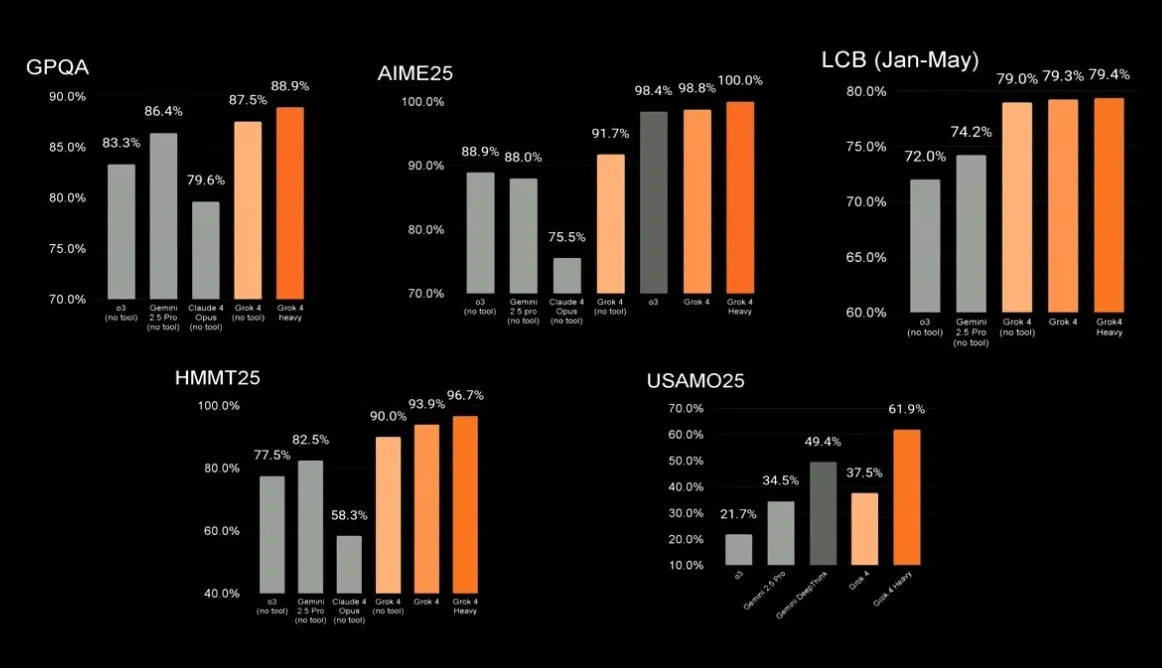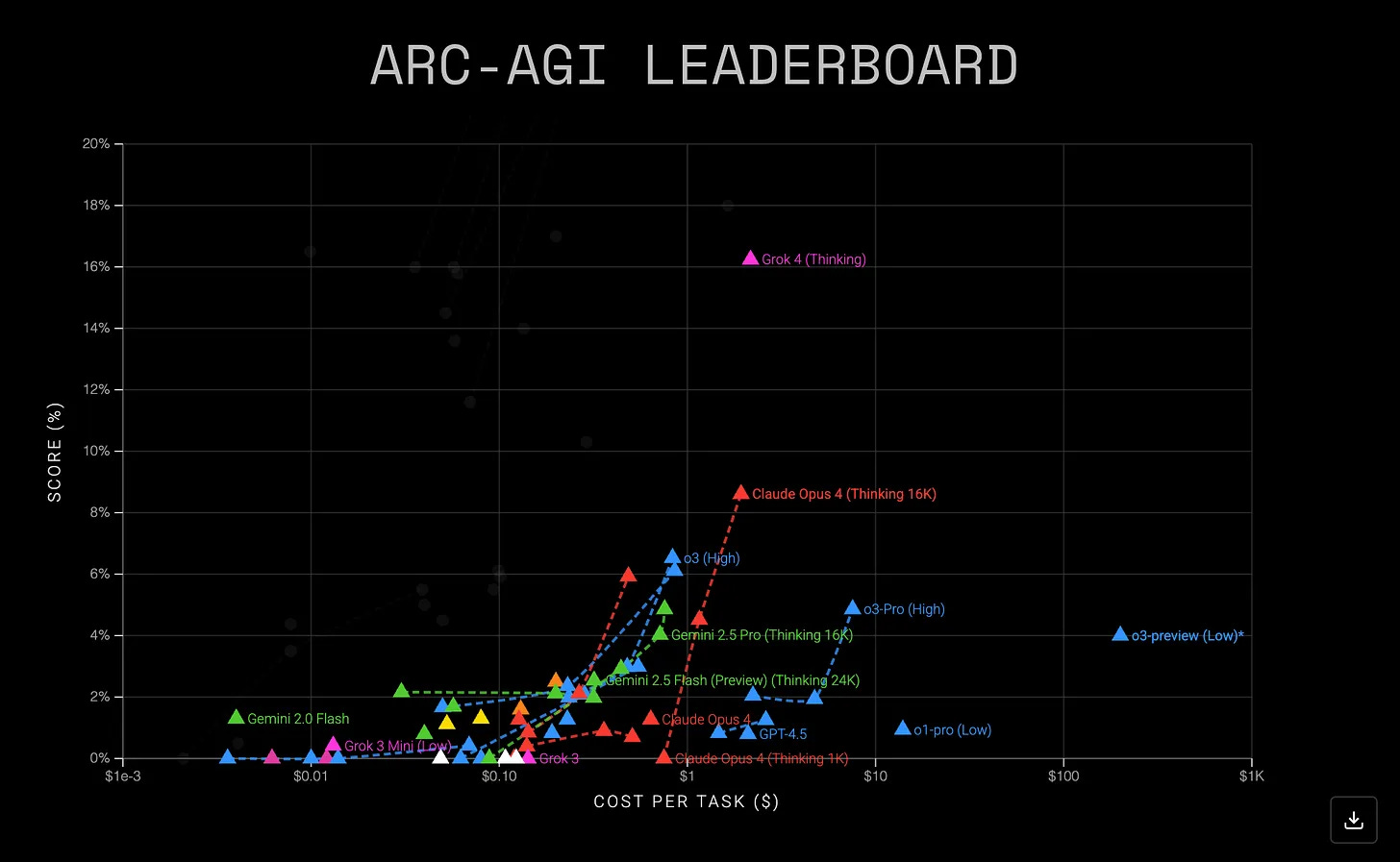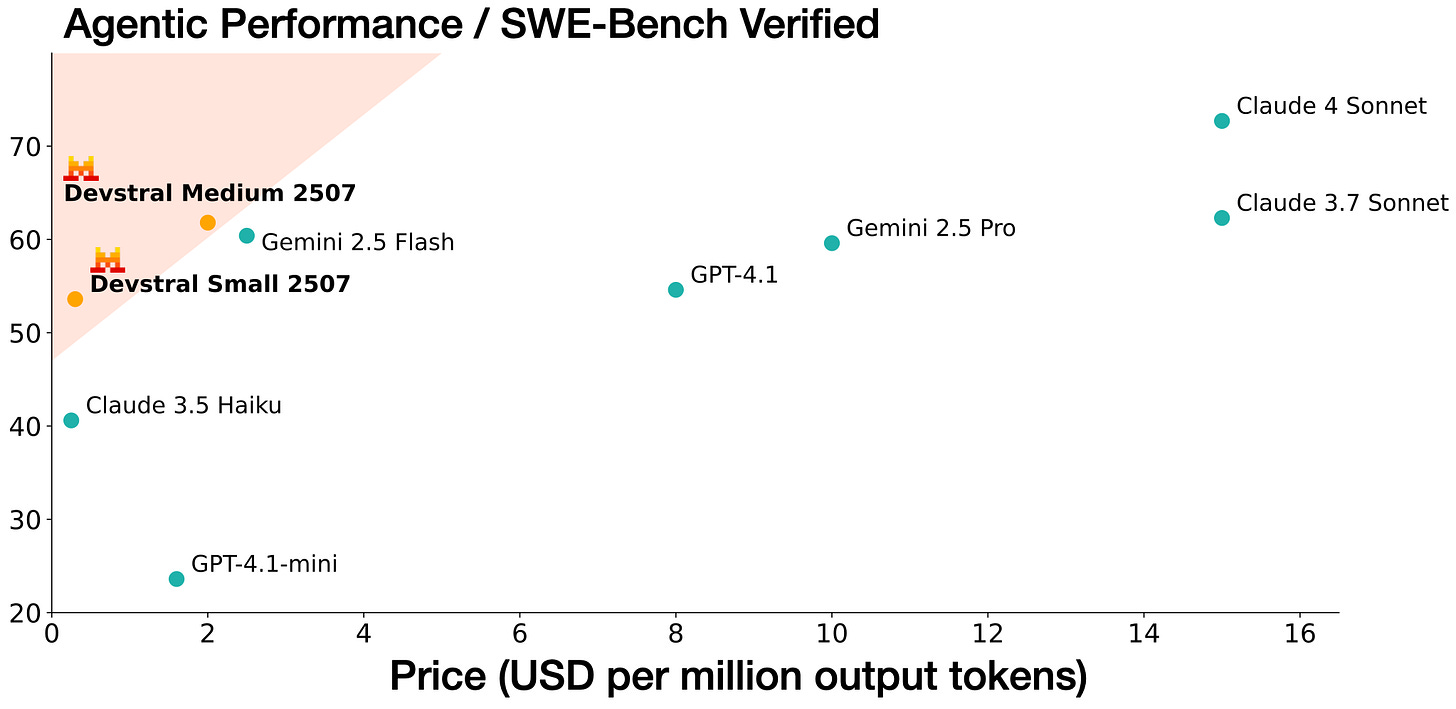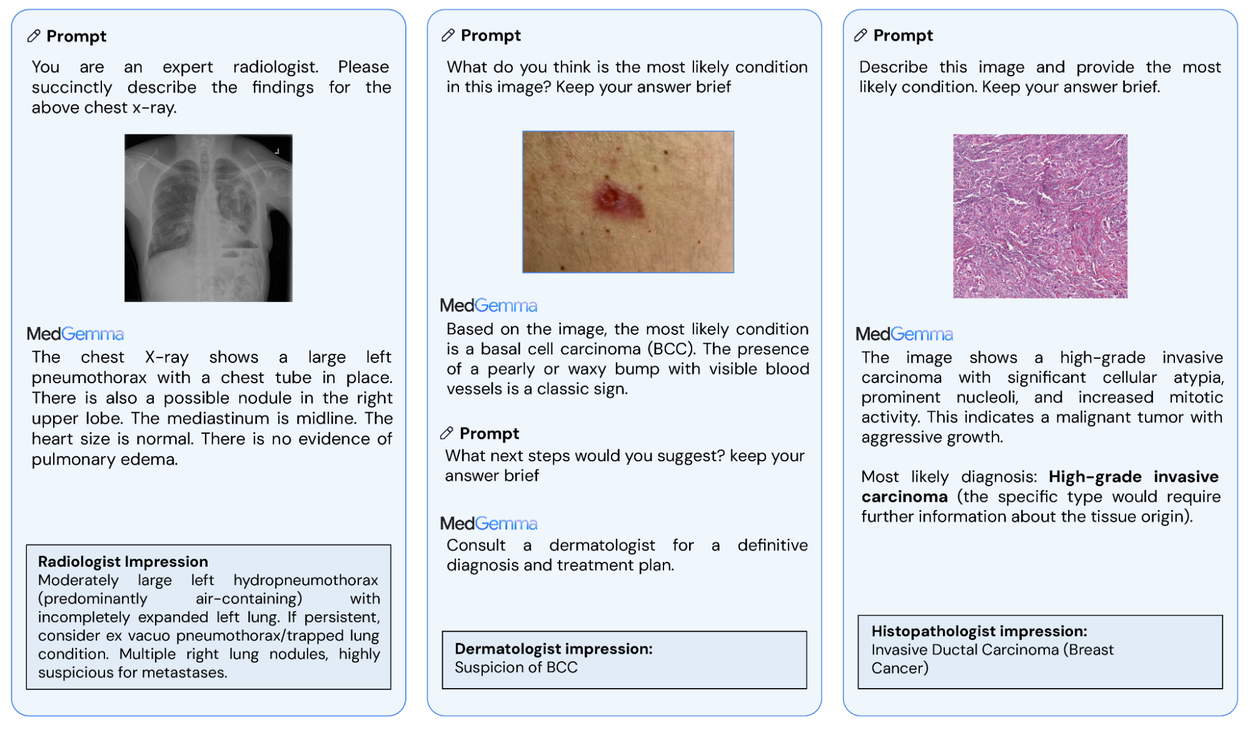Grok's Ups and Downs, Anthropic Learns | Weekly Edition
PLUS HOT AI Tools & Tutorials
Hey there! Welcome to another Creators’ AI Edition!
This week, xAI’s Grok 4 rockets to the top of the leaderboards and stirs up fresh controversy, Perplexity’s new browser, and BrowserOS lets you keep your AI workflows private and local. Amazon debuts its AI Agent Store, Mistral and Microsoft unleash powerful new coding models, and Google’s MedGemma brings next-gen medical AI to more clinics and devices. Plus, Replit and Microsoft partner up, and open tools like Context are making automation smarter than ever.
Ready to see what’s making waves in AI? Let’s jump in!
This Creators’ AI Edition:
Featured Materials 🎟️
News of the week 🌍
Useful tools ⚒️
Weekly Guides 📕
AI Meme of the Week 🤡
AI Tweet of the Week 🐦
(Bonus) Materials 🎁
Featured Materials 🎟️
The Good, The Bad, The Ugly
Elon Musk’s xAI has just dropped what might be the most powerful AI models yet, and this time, the hype is real—benchmark results are truly eye-popping. The two new models, Grok 4 and Grok 4 Heavy, are both multimodal reasoning models with native tool use and a massive 256K token context window, plus integration with X for real-time info.
Grok 4 has surged to the top of benchmarks like ARC-AGI, leaving previous leaders like OpenAI’s o3, Claude Opus 4, and Gemini 2.5 Pro far behind. On Humanity’s Last Exam, Grok 4 Heavy hit an unmatched 44%, and even the standard Grok 4 is going toe-to-toe with OpenAI’s Deep Research and China’s Kimi Researcher. In independent testing, Grok 4 scored an Intelligence Index of 73 (higher than all its rivals) and ran a simulated vending machine business that doubled the profits of Claude 4 Opus and outperformed humans six times.
In the chat app, you can use Grok-4 for $30/month
xAI has also introduced a new SuperGrok Heavy subscription for $300 a month, signaling a premium tier that’s pricier than anything else in the space. Right now, Grok 4 is available to SuperGrok users and via API, with pricing on par with Claude 4 Sonnet but more expensive than Gemini 2.5 Pro and OpenAI o3.
Looking ahead, xAI plans to launch a specialized coding model in August, a multimodal agent in September, and video generation capabilities by October, showing they’re not slowing down any time soon.
Grok 4 isn’t just the “smartest” AI this week—it’s also supposedly the most unbiased and honest model in the world!
That’s sarcasm, of course. Like every other model on the market, these AIs have their own “opinions”, often shaped by a specific party, ideology, or—in Grok’s case—the perspective of a single person. And that person is Elon Musk.
In the video, you can see that when Grok is asked about the Israel-Palestine conflict, it first checks Twitter to see what Elon thinks, then searches the web for Elon’s opinions, and finally adds a few unrelated points at the end.
Perplexity launched Comet
Perplexity has joined the fray with Comet, a new browser designed to be your digital “thought partner,” turning messy tabs and endless clicking into fluid, conversation-driven workflows where the AI does the heavy lifting. With Comet, you just describe what you need, like finding products, booking meetings, or getting a daily briefing, and it manages entire browsing sessions on its own. Every webpage gets supercharged with Perplexity’s AI search, offering instant summaries and contextual answers, and a persistent AI assistant understands everything you’re doing across any site or app.
OpenAI isn't staying on the sidelines and is planning to launch its web browser in a few weeks.
Currently, Comet is rolling out to Perplexity Max subscribers at $200 a month, aiming to become the main gateway for users in an AI-first internet, where your browser feels more like a collaborator than a tool.
Do you think Comet has a shot at competing with Browser OS? It’s free, private, open-source, and works easily as a Chrome extension.
News of the week 🌍
v0 Platform API Beta
The v0 Platform API is now in public beta! This text-to-app API lets you generate, parse, and auto-fix web app code straight from prompts, plus get live previews. It also allows you to programmatically manage chats and projects from v0.dev. Perfect for dev workflows, automation, and tool integration. TypeScript SDK and docs are live—give it a try!
Replit x Microsoft
Replit announced a new partnership with Microsoft that will bring Replit’s agentic coding features to Azure’s enterprise customers, making it easier for businesses to leverage advanced AI-powered development tools within the Microsoft cloud ecosystem.
Also, this week, Replit introduced replite.md. This special file lives in your project’s root directory and helps Agent understand your preferences, coding style, and project details so it can generate exactly what you need.
Mistral’s New Models
Mistral has just released two new coding models, Devstral Small 1.1 and Devstral Medium, that outperform much more expensive options like Gemini 2.5 Pro and GPT-4.1. Devstral Small 1.1 scores 53.6% on SWE-Bench Verified, while Devstral Medium leads the pack with a 61.6% score at just a quarter of the cost of its competitors. Both models are designed to work seamlessly with agentic scaffolds and support various prompting formats, making them a great fit for autonomous coding workflows.
Plus, Devstral Small 1.1 is open source under the Apache 2.0 license.
Microsoft Introduced a New Model
Microsoft has just released Phi-4-mini-flash-reasoning, a fast and efficient 3.8B parameter model built for advanced math and logic tasks. With a 64K token context window and much lower latency than similar models, it’s great for use cases like adaptive learning platforms, mobile study aids, and edge-based logic agents. Fine-tuned on high-quality synthetic data, it delivers reliable reasoning and quick responses, making it a strong fit for interactive tutoring, educational tech, lightweight simulations, and automated assessment tools that need real-time, logic-driven performance.
AI Agent Store By Amazon
Amazon Web Services is set to launch an AI agent marketplace at the AWS Summit in New York on July 15, with Anthropic already on board as a main partner. The new marketplace will let AWS customers browse, compare, and install a wide variety of AI agents from one platform, while start-ups like Anthropic can offer their agents on usage-based or subscription plans, Amazon takes a small cut from each transaction. This move puts Anthropic’s agentic AI models in front of AWS’s massive customer base and encourages more developers to build their agents using open APIs.
With Google and Microsoft already rolling out similar agent marketplaces, it’s clear this trend is catching on, though it’s still early days for measuring the impact on smaller AI companies and the businesses looking for affordable, targeted solutions.
Updates in MedGemma
Google has rolled out major updates to its MedGemma suite, adding two new open medical AI models, including a powerful 27B multimodal model that can interpret medical images and patient records, along with the MedSigLIP tool for analyzing images and text. MedGemma can tackle a wide range of cases, from chest X-rays to skin conditions, and the smaller version is efficient enough to run on everyday devices like laptops or smartphones. The models set new accuracy records, with the 4B model reaching 64.4% and the 27B model hitting 87.7% on the MedQA benchmark, outperforming similar-sized models. In real-world testing, MedGemma’s X-ray reports were accurate enough for patient care 81% of the time, on par with human radiologists.
The open models are also highly adaptable, with hospitals using them for everything from traditional Chinese medical texts to urgent radiology cases. These updates mean world-class medical AI is becoming accessible even for small clinics and underserved areas, helping bring advanced healthcare tools to more people than ever.
Still haven’t read about real cases of AI in healthcare?
Useful tools ⚒️
TensorBlock Forge - One API for all AI models
OneNode - Simplest backend for AI coding (Open source)
opencode - Your terminal's AI agent, with any model you want
Permut - AI Agents for customer listening and feedback collection
Context - The AI office suite
The first AI Office Suite. It’s like Cursor but for all of your existing tools. Context connects to your existing tools (Gmail, Slack, Notion, Google Drive, or 40+ more tools) and uses your data to instantly generate:
⦁ Presentations - Sales decks, project updates, board reports, pitch presentations
⦁ Documents - Proposals, contracts, meeting summaries, research reports, marketing copy
⦁ Spreadsheets - Financial models, project trackers, budget forecasts, performance dashboards
⦁ Analysis - Data insights, trend reports, competitive analysis, customer research summaries
⦁ And anything else that Context can generate
Context doesn’t just automate workflows; it actively learns how you work and gets things done exactly the way you would, freeing your time for higher-value tasks.
Weekly Guides 📕
Anthropic platform
Anthropic has launched a free educational platform that currently offers six courses, making it easier for anyone to learn about AI and related topics.
And our general block of weekly guides:
Ultimate VEO 3 Update EXPLAINED: How To Use Google Veo-3 For Beginners
How to Spend Your 20s in the AI Era
Context Engineering for Agents
How To 10x Your Notes: Obsidian + Claude AI Agents
AI Meme of the Week 🤡
AI Tweet of the Week 🐦
Do you agree?
(Bonus) Materials 🎁
Why Do Some Language Models Fake Alignment While Others Don’t?
Designing AI for Human Flourishing
The Architecture Behind Lovable and Bolt
IBM's new chips aim to simplify AI deployment in business operations
If you missed our previous updates, don’t worry, here they are:














